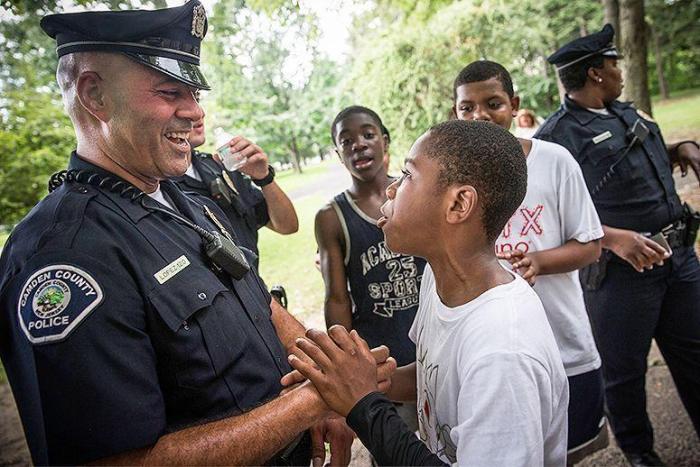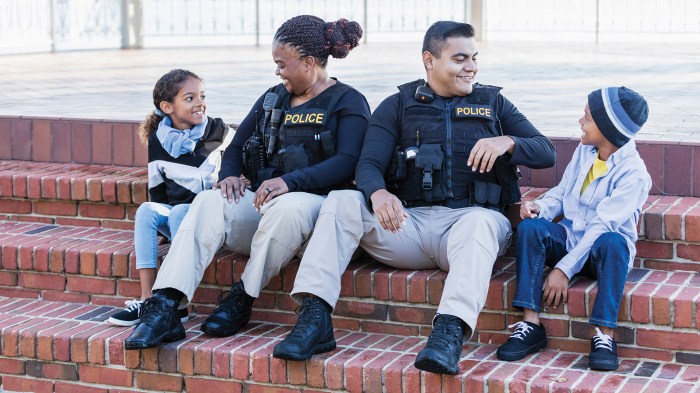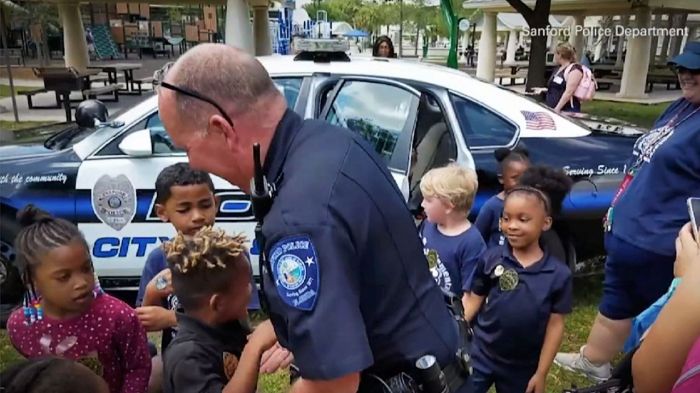Community policing gives patrol officers freedom to improvise – Community policing grants patrol officers the freedom to improvise, enabling them to effectively address the unique needs of their communities. This innovative approach empowers officers to go beyond traditional policing methods and forge meaningful connections with residents, fostering trust and collaboration.
By embracing improvisation, patrol officers become more adaptable and responsive to the dynamic challenges they encounter. They can tailor their strategies to suit specific situations, fostering a sense of ownership and accountability within the community.
Community Policing Overview: Community Policing Gives Patrol Officers Freedom To Improvise

Community policing is a policing strategy that emphasizes the partnership between law enforcement and the community. It is based on the principles of trust, respect, and cooperation. The goal of community policing is to reduce crime and improve the quality of life in a community.
Patrol officers play a vital role in community policing. They are the front line of law enforcement and are responsible for building relationships with community members. Patrol officers can improvise to address community needs, such as by providing assistance to victims of crime, helping to resolve neighborhood disputes, and working with community organizations to address crime problems.
Improvisation in Community Policing
Improvisation is the ability to think and act quickly in response to unexpected situations. It is a necessary skill for patrol officers, who often have to deal with situations that are not covered by their training. For example, a patrol officer may need to improvise when they encounter a mentally ill person, a domestic violence situation, or a traffic accident.
There are many ways that patrol officers can improvise to address community needs. For example, they can use their own personal experiences to help them understand the community’s needs. They can also use their knowledge of the community to develop creative solutions to problems.
Additionally, they can work with community members to identify and address crime problems.
Benefits of Improvisation in Community Policing
There are many benefits to improvisation in community policing. First, it can help patrol officers to build relationships with community members. When patrol officers are able to improvise to address community needs, it shows that they are invested in the community and that they are willing to go the extra mile to help.
This can help to build trust and respect between patrol officers and community members.
Second, improvisation can help patrol officers to solve problems more effectively. When patrol officers are able to think outside the box and come up with creative solutions to problems, it can lead to better outcomes for the community. For example, a patrol officer may be able to use improvisation to mediate a neighborhood dispute, or to develop a new crime prevention program.
Challenges of Improvisation in Community Policing
There are also some challenges to improvisation in community policing. One challenge is that it can be difficult for patrol officers to know when to improvise and when to follow the rules. Another challenge is that improvisation can sometimes lead to mistakes.
For example, a patrol officer may make a mistake if they are not properly trained in how to improvise.
Training and Support for Improvisation
It is important for patrol officers to receive training and support in improvisation. Training can help patrol officers to learn how to improvise effectively and to avoid making mistakes. Support can help patrol officers to feel more confident in their ability to improvise.
There are many different types of training and support programs that can help patrol officers to improve their improvisation skills. Some of these programs include role-playing exercises, scenario-based training, and mentoring.
Evaluation of Improvisation in Community Policing, Community policing gives patrol officers freedom to improvise
It is important to evaluate the effectiveness of improvisation in community policing. Evaluation can help to identify the benefits and challenges of improvisation and to develop strategies for improving improvisation training and support.
There are many different ways to evaluate the effectiveness of improvisation in community policing. Some of these methods include surveys, interviews, and focus groups. Evaluation can also be conducted by measuring the impact of improvisation on crime rates, community satisfaction, and other indicators of community well-being.
FAQ Insights
What are the benefits of improvisation in community policing?
Improvisation allows patrol officers to adapt to unique community needs, build stronger relationships with residents, and enhance problem-solving capabilities.
What are some challenges associated with improvisation in community policing?
Patrol officers may face challenges in balancing improvisation with adherence to policies and procedures, as well as ensuring accountability for their actions.
How can patrol officers be trained and supported in improvisation?
Effective training programs and support mechanisms can provide patrol officers with the skills and guidance necessary to successfully navigate the complexities of improvisation in community policing.

